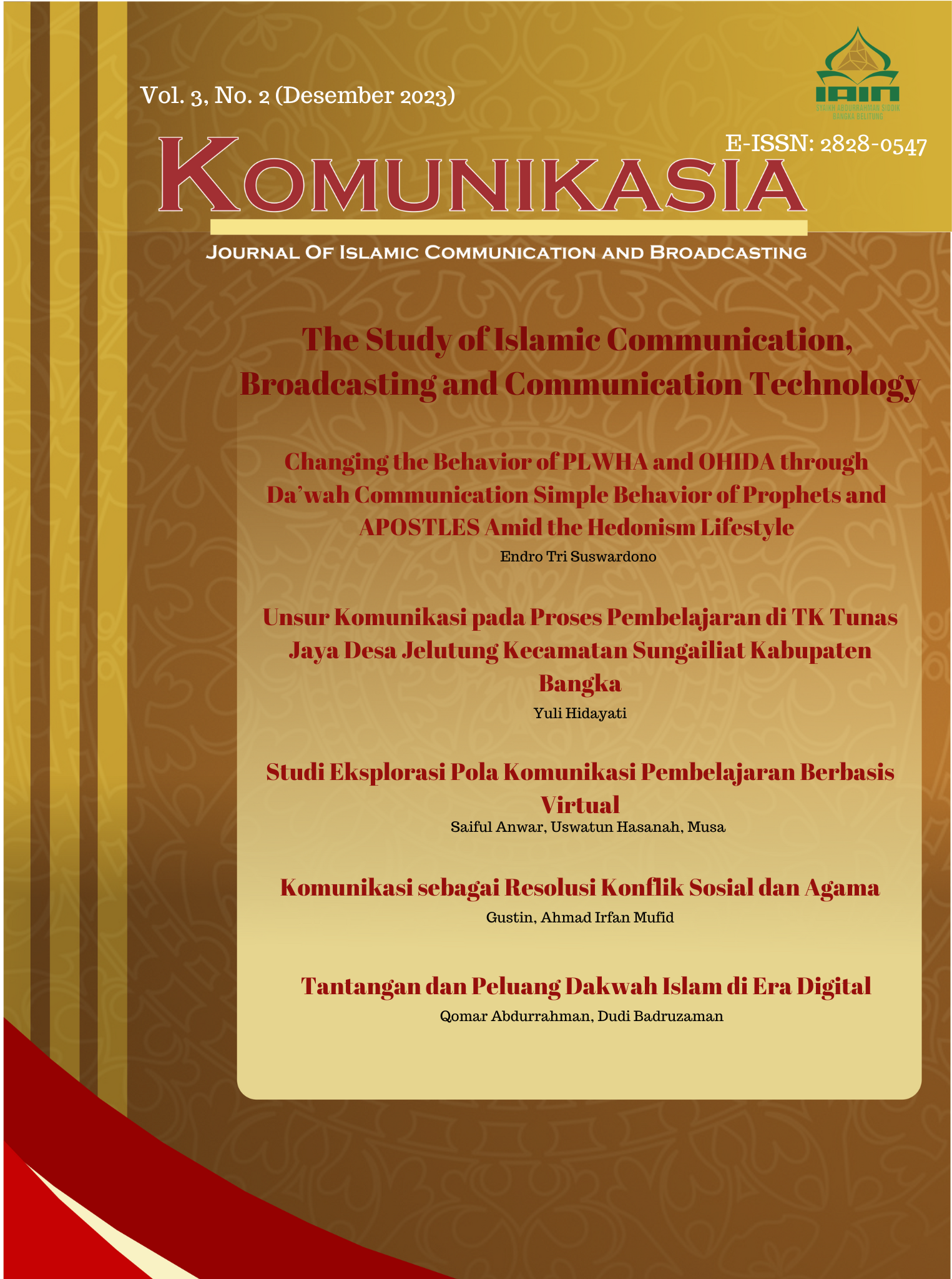STUDI EKSPLORASI POLA KOMUNIKASI PEMBELAJARAN BERBASIS VIRTUAL
Abstract
Improvements in communication technology have a broad impact in various fields, including education. The pattern of learning communication has changed from face-to-face learning activities to virtual-based learning. This virtual-based communication pattern is getting stronger with the presence of the Covid-19 pandemic. This research aims to eksplore various articles related to virtual-based learning communication patterns. This research uses the Systematic Literature Review (SLR) method with meta-synthesis analysis techniques. Data collection in this study was carried out by collecting articles from 2020-2023 that have a similar focus. The articles analyzed in this study were 9 accredited national journal articles obtained from the Google Scholar database using Harzing's Publish or Perish application with the keyword virtual-based learning communication patterns. This study found that the virtual learning process can run well, not only supported by mastery of the application used but also supported by the involvement of parents as a substitute for the teacher's role in the learning process as a facilitator, motivator, and director.
Downloads
Copyright Notice
Komunikasia: Journal of Islamic Broadcasting and Communication is under the Creative Commons Attribution 4.0 International (CC-BY 4.0) License, according to which:
1) Authors retain copyright and grant the journal the right to first publication, with the work simultaneously licensed under the Creative Commons Attribution (CC-BY 4.0) that allows the sharing of articles published with the acknowledgment of authorship and the initial publication in this journal.
2) The authors are authorized to make additional contracts separately for distribution of the version of the work published in this journal (for example, publication in an institutional repository or as a chapter of the book), as long as there is recognition of authorship and initial publication in this journal.
3) Authors are authorized and encouraged to publish and distribute their work online (for example, in institutional repositories or on their personal pages) at any time before or during the editorial process, as it increases the impact and reference of the published work.



















